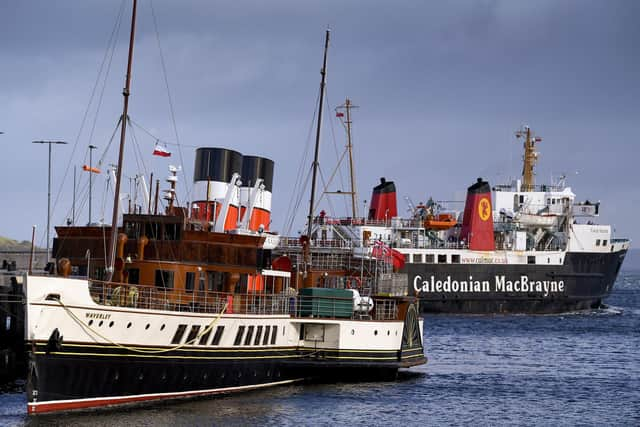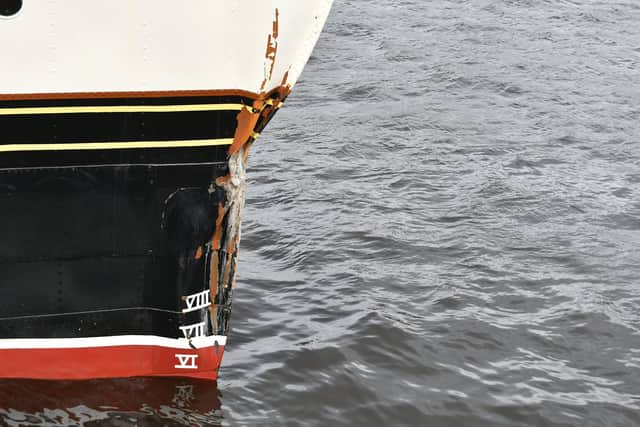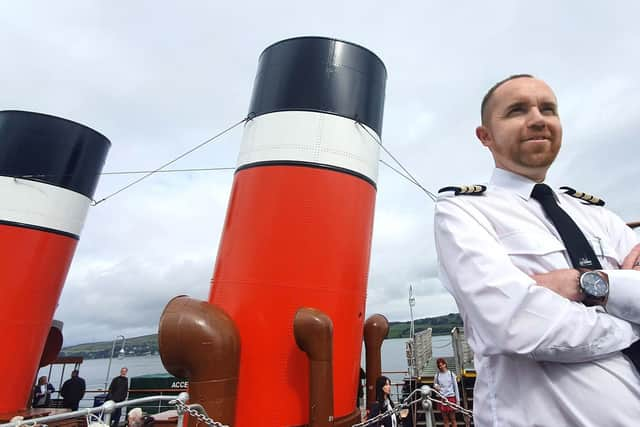Waverley paddle steamer crash: ‘I knew about five or six seconds before that it was going to happen’
Waverley Excursions general manager Paul Semple was speaking ahead of the second anniversary tomorrow of the incident on Arran, with still no sign of an official report into what happened.
A total of 24 of the 239 passengers and crew were injured in the crash, which also damaged the vessel’s bows and prematurely ended its 2020 season, which had already been severely curtailed by Covid restrictions.
Advertisement
Hide AdAdvertisement
Hide AdAmong several out-of-court settlements following the incident, one passenger, understood to be male, won a five-figure pay-out after suffering a broken arm.


One eyewitness, Karen Mulligan, said she and her husband Andrew had slipped on steps.
She said: “We were up on the top deck when there was a big, loud thud.
"It took me a few seconds to realise that when I saw people falling, it was quite serious.
"People were falling off seats.”


It was at least the fourth time the world’s last ocean-going steamer is reported to have hit harbours in the Clyde since 2009.
Mr Semple, who was also on board at the time of the September 3, 2020 incident, told The Scotsman: "I knew about five or six seconds before that it was going to happen.
"I was on deck. I’d just come out of the purser’s office.
"You felt the ship nudge – it was a knock.


"Some people bumped into things – it was a heavy lean."
Mr Semple said most of the injuries had been bumps and bruises, such as “like standing next to a piece of furniture and bumping into it”.
The general manager said operating procedures for the 75-year-old vessel had since been changed.
Advertisement
Hide AdAdvertisement
Hide AdHe said “we reviewed our own safety management system”, which had been “completely revised”.
"It was an opportunity for us to look at it and make it better … to prevent this happening again,” he said.
Mr Semple explained such vessels required a “different skill set” from other ships.
He said: "A paddle steamer is different to handle from any other vessel.
"I can remember a master coming on with 25 years’ experience at sea – he said it was [like] starting again.
"You move her faster towards piers because a paddle steamer will stop differently because the paddles are such a positive propulsion system.
"As soon as she slows down, the wind can affect her more."
Mr Semple said the change from wooden to concrete piers was another factor.
He said: “If you look back in history, the steamers have ‘knocked’, but the jetties have changed and that makes a difference.
Advertisement
Hide AdAdvertisement
Hide Ad"Traditionally, Waverley would have berthed at wooden piers. Wood is more giving than concrete.”
It is understood the lack of a report from the UK Department for Transport’s Marine Accident Investigation Branch (MAIB) nearly two years after the incident suggests officials have not found any major concerns about the ship or the way it was operated.
A MAIB spokesperson said: “The final report into the investigation has been delayed due to other high-priority investigations.
"They are working towards issuing the report as soon as possible, but are not able to confirm the date of the final publication at this stage.”
Comments
Want to join the conversation? Please or to comment on this article.
